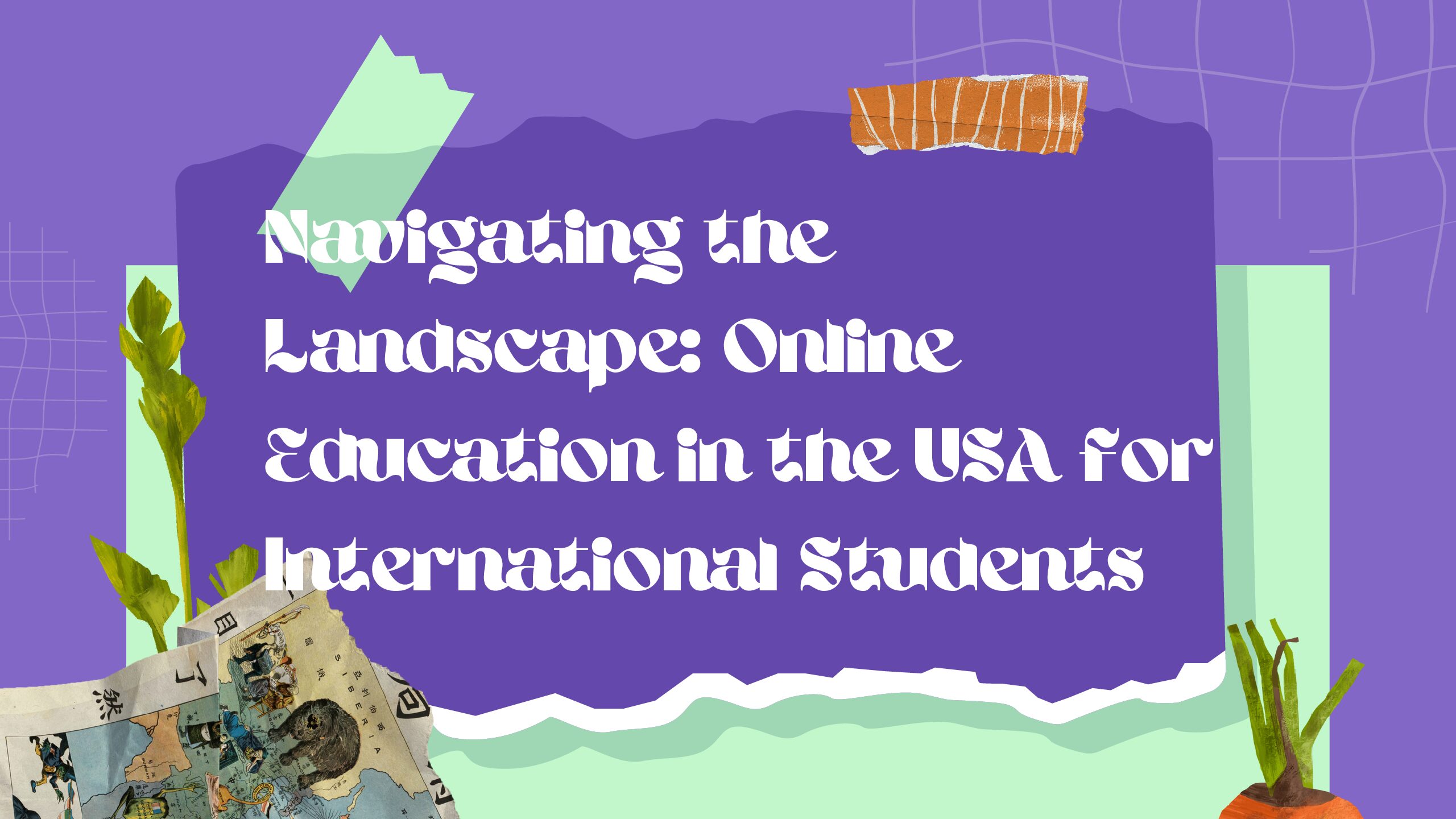Introduction
In recent years, the landscape of education has undergone a profound transformation. With the advent of technology and the rise of the internet, traditional barriers to education have gradually dissolved, making knowledge more accessible and flexible than ever before. This paradigm shift has been particularly significant for international students aspiring to study in the United States. The emergence of online education platforms has provided them with unprecedented opportunities to pursue their academic goals remotely, transcending geographical constraints and cultural boundaries.
In this comprehensive exploration, we delve into the realm of online education in the USA for international students. We unravel the myriad facets of this dynamic phenomenon, examining its evolution, advantages, challenges, and the pivotal role it plays in shaping the future of global education.
The Evolution of Online Education in the USA
The roots of online education can be traced back to the early experiments with distance learning, which began as correspondence courses in the 19th century. However, it was not until the proliferation of the internet in the late 20th century that online education truly gained momentum. The USA, with its robust technological infrastructure and innovative spirit, emerged as a pioneer in this domain.
In the early 2000s, institutions such as the Massachusetts Institute of Technology (MIT) and Stanford University started offering online courses, laying the foundation for the mashttps://rstblog.com/sive open online course (MOOC) movement. These initiatives democratized education by making high-quality learning resources freely available to anyone with an internet connection, irrespective of their location.
Over the years, online education in the USA has evolved significantly, encompassing a diverse array of programs ranging from individual courses to fully accredited degrees. Leading universities, including Harvard, Yale, and Columbia, have embraced online learning, recognizing its potential to reach a global audience and foster inclusivity.
Advantages of Online Education for International Students
The rise of online education has brought forth a plethora of benefits for international students seeking to study in the USA:
- Accessibility: Online courses eliminate the need for physical presence, enabling students to participate from anywhere in the world. This accessibility is particularly advantageous for international students who may face visa restrictions or financial constraints.
- Flexibility: Online programs offer flexibility in terms of scheduling, allowing students to balance their studies with work, family commitments, or other obligations. This flexibility is especially valuable for international students who may juggle multiple responsibilities while pursuing their academic endeavors.
- Cost-effectiveness: Online education often entails lower tuition fees and eliminates expenses associated with accommodation, transportation, and relocation. For international students, this cost-effectiveness can make studying in the USA more attainable and financially sustainable.
- Diverse Learning Environment: Online classrooms bring together students from diverse cultural backgrounds, fostering cross-cultural exchange and collaboration. This multicultural environment enriches the learning experience, providing international students with insights and perspectives beyond their own cultural context.
- Technological Integration: Online learning platforms leverage cutting-edge technologies such as virtual reality, artificial intelligence, and interactive simulations to enhance engagement and facilitate immersive learning experiences. International students benefit from exposure to these innovative tools, gaining valuable digital skills in the process.
Challenges and Considerations
Despite its numerous advantages, online education for international students is not without its challenges. Some of the key considerations include:
- Technological Barriers: Access to reliable internet connectivity and technology infrastructure may be limited in certain regions, posing challenges for international students attempting to participate in online courses.
- Time Zone Differences: International students studying remotely may encounter difficulties synchronizing their schedules with live lectures or collaborative activities, particularly if they reside in different time zones.
- Cultural Adaptation: Adapting to the norms and expectations of online learning platforms, which may vary across different cultural contexts, can pose challenges for international students navigating unfamiliar educational environments.
- Academic Integrity: Ensuring academic integrity in online assessments and evaluations presents unique challenges, including the risk of cheating or plagiarism, which institutions must address through robust measures and protocols.
- Social Isolation: Online learning, while providing flexibility and convenience, may also lead to feelings of social isolation and disconnection, especially for international students who lack opportunities for face-to-face interaction with peers and instructors.
Future Prospects and Conclusion
Looking ahead, the future of online education for international students in the USA appears promising, driven by ongoing advancements in technology, pedagogy, and global connectivity. As institutions continue to innovate and adapt to the evolving needs of learners, online education will likely play an increasingly prominent role in the landscape of higher education, transcending borders and fostering a more inclusive and accessible learning ecosystem.
In conclusion, online education in the USA offers a wealth of opportunities for international students, empowering them to pursue their academic aspirations with greater flexibility, affordability, and inclusivity. By embracing the transformative potential of online learning, institutions can enrich the educational experience for students worldwide, paving the way for a more interconnected and knowledge-driven society.
